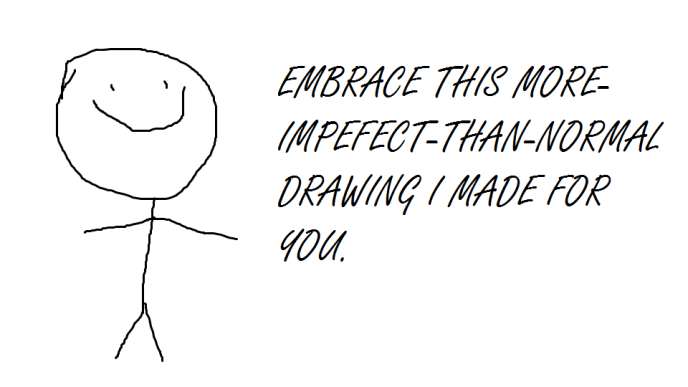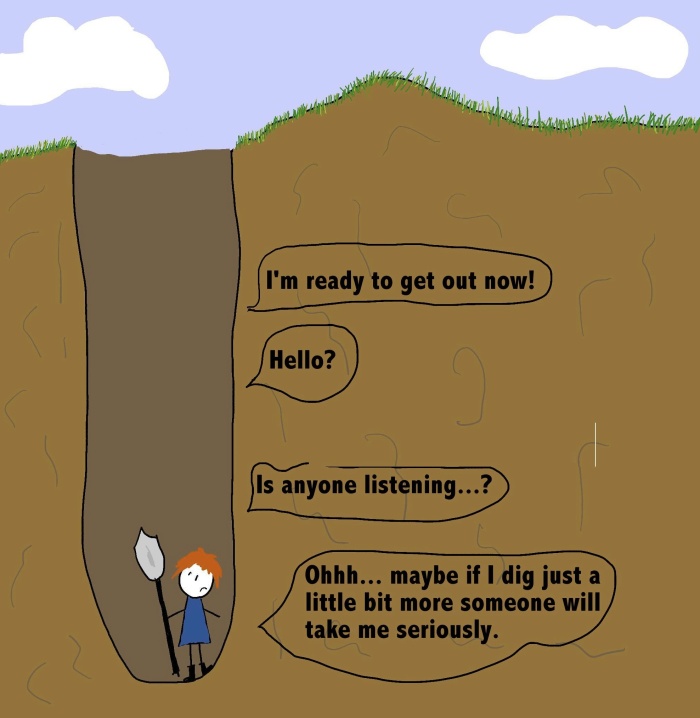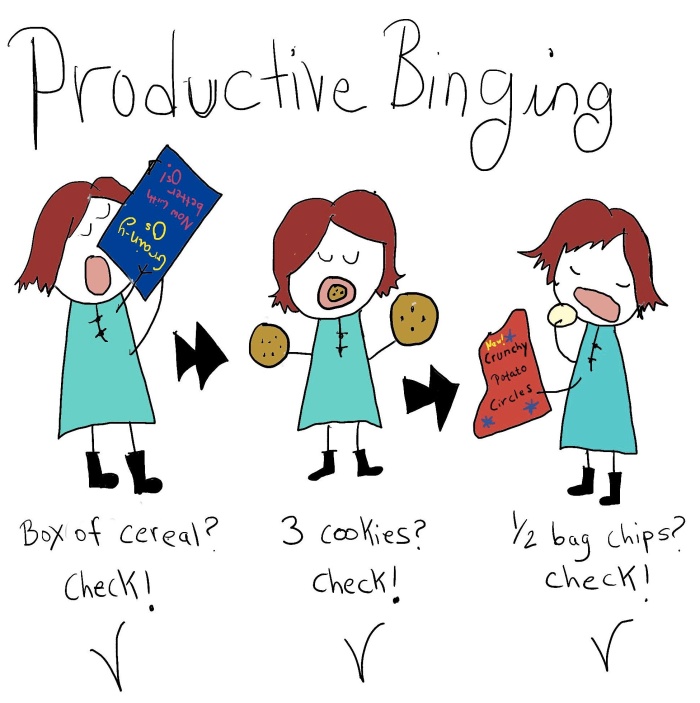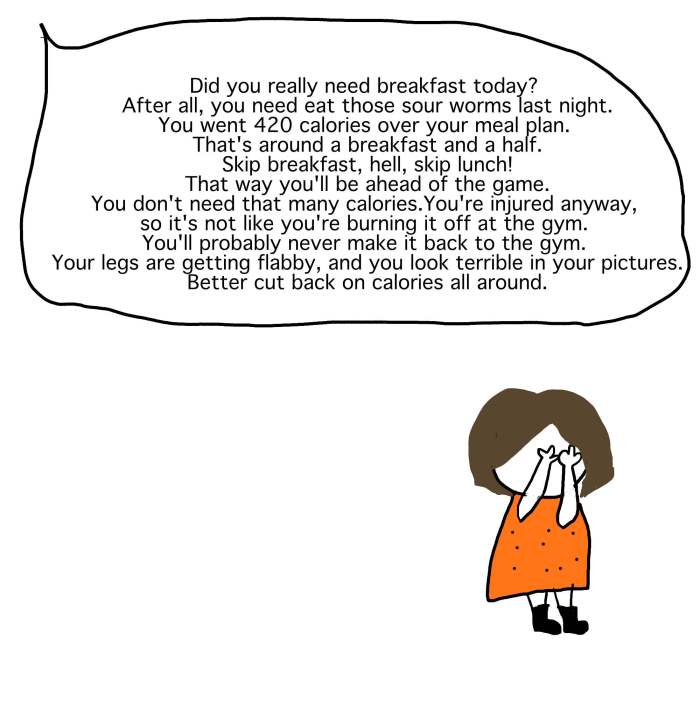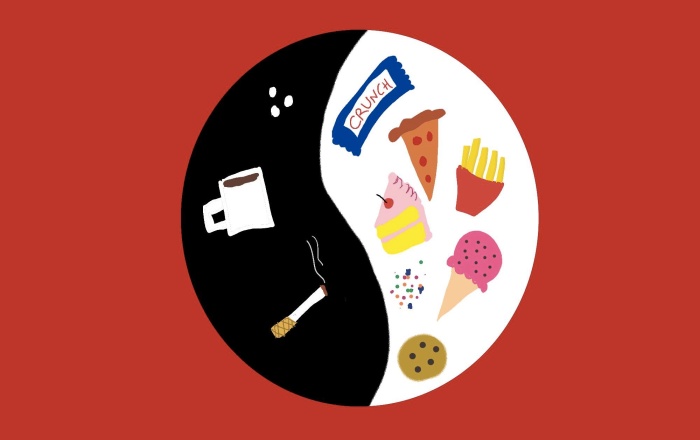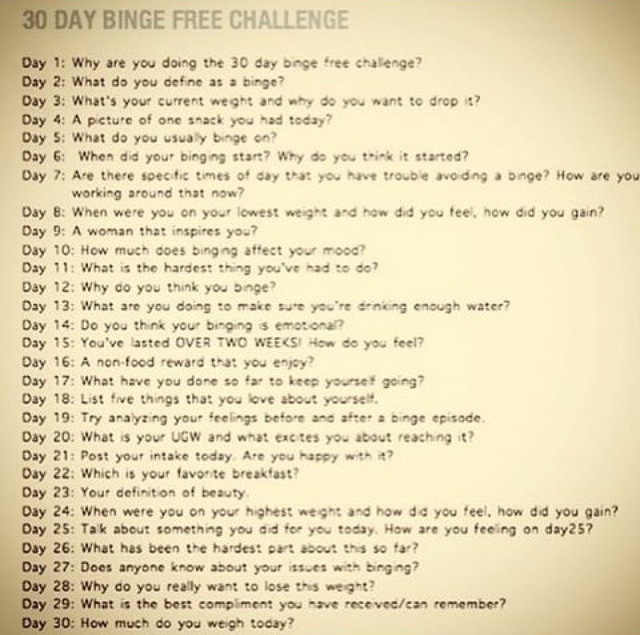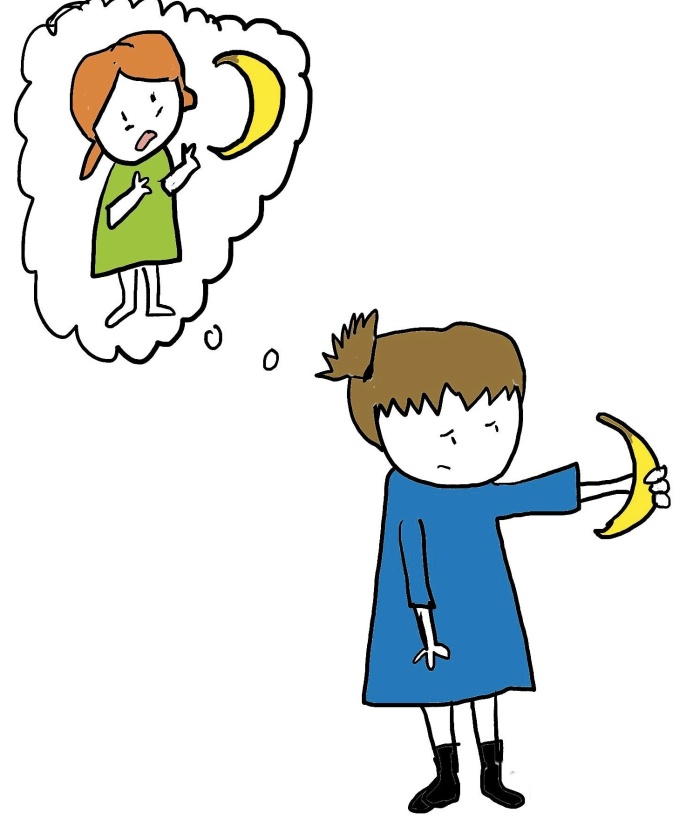For the majority of my life, I believed that OVEREATING was my main problem. Binge eating was the obstacle in my way of being a thin girl who was capable of successfully restricting her intake.
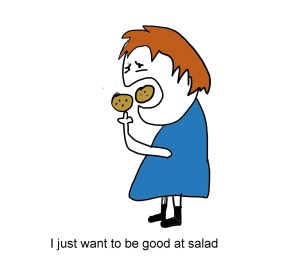
A few days of restriction would follow a few days of binge eating. Some weeks were worst than others, but overall the pattern remained consistent. Each time I would binge, I convinced myself I just needed to TRY HARDER to not binge. When this didn’t work, I searched relentlessly for reasons “why” I binged.
Was it emotional? Was it biological? Did I have a hormone I imbalance? Vitamin deficiency? Did I need to work out more? Was I eating enough fiber? Drinking enough water?
I hoped that each of these distractions would solve my issue, but they never did. Every pursued reason cost me time, money and unnecessary anguish. Whenever they failed to reveal themselves as the solution I hoped they would be, I felt more and more hopeless, like there was something fundamentally wrong with me.
Why couldn’t I just stop binging?
I was putting so much effort into “healthy eating.”
Eventually I decided to take a long-hard look at my habits.
Making Friends With MyFitnessPal
I was hesitant at first to track calories, or examine my dietary needs. While I used myfitnesspal.com in the past to make sure I was only eating around 1,000 calories a day, I had never used it to figure out what was really going on. I never, ever used this app to track my binges. I more or less used it as guide to tell me what sort of foods I should or shouldn’t avoid.
This all had to change.
First, I looked up my TDEE, or Total Daily Expenditure, using this calculator. TDEE tells you how many calories your body needs a day in order to function properly. You need this amount of calories so that you may sleep, move, exercise, clean, run, pee, eat, watch TV, etc.
In my case, I needed around 1,700 calories a day to maintain my weight at my current activity. This amounted to 11,900 calories a week.
Then I did the math. For a few weeks, I tracked everything I ate, INCLUDING the binges. It was tedious and sometimes embarrassing, but eventually the math exposed all.
On average, I was consuming around 800-1,200 calories a day when I was trying to restrict. This came out to be about 6,300 calories a week, or about 5,600 less than I required.
Interestingly, my binges were typically around 800-1,000 calories (not extravagant by any means, but still enough to cause me discomfort). This averaged about 5,950 calories per week.
Can you see where this is going?
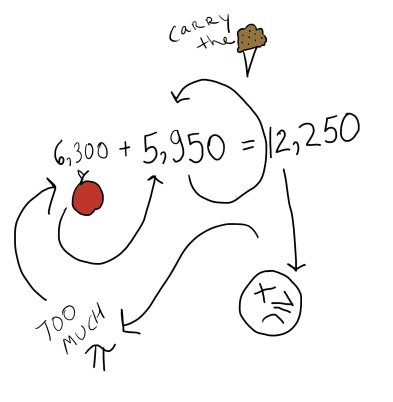
Let’s do a fun equation!
6,300 a week from normal, restrictive intake+5,950 a week in binges = 12,250 a week.
12,250 / 7 = 1,750 a day.
Do you see it?
Let’s try it with some algebra.
11,900 required for survival = 6,300 from normal restrictive intake + X
In this equation, the missing variable is binge food. In other words, if you’re restricting your intake, your body “needs” the binge to stabilize its weight and keep everything functioning.
Restricting is Causing You to Binge More
If you’ve followed my math up until this point, you can see that
MY BINGES WERE A BIOLOCIAL RESPONSE TO RESTRICTION. MY BODY WAS FORCING ME TO COMPENSATE FOR THE CALORIES I DIDN’T REGULARLY EAT.
While I may have thought I was doing myself a favor and flexing my willpower muscle by not eating until 4pm, or eating a paltry 800 calories a day, in reality I was setting myself up to binge Every. Single. Time.
In fact, regularly under eating caused me to be irrational and unfocused, probably to the point where I was eating more calories than I needed some weeks, ultimately leading to the weight gain I was trying to escape in the first place.
I was the cause of my own problem.
Is the Crazy Binge-Restrict Cycle Worth It?
At some point, I asked myself if it was all worth it.
Was one out-of-control meal at the end of the day worth missing out on three warm, slow-paced meals?
Was feeling hungry all day rewarding enough that it made up for the nights spent avoiding my friends so that I could binge?
Was not planning my meals worth the extra two hours I gained to watch TV or mindlessly surf the internet (usually looking for advice on how to stop binging)?
Was skipping breakfast worth the overwhelming late-night cravings?
Did guiltily consuming four candy bars as fast as I could taste better than leisurely enjoying one?
Were the frantic, messy eating habits more satisfying than a balanced approach?
I decided they were not.
How I Started to Break Free From the Binge Cycle and How You Can Too
Basically, I did these three things:
- I strived to hit 1,700 calories a day, no matter what. Even if I binged the night before.
- I started to learn how to meal plan, and didn’t wait until I was ravenous to begin eating.
- I strived to eat three meals a day, and two or three snacks, instead of eating all of my calories at one tim
If you have also decided these things aren’t worth the pain they cause, try these simple steps:
- Start by calculating your own TDEE* and do the math. If you’re comfortable counting calories, myfitnesspal.com is a great place to begin. Track your intake as honestly as possible for a week or two. Refrain from judging yourself too harshly. You may find that you’re binging to make up for the calories you are not consuming on a daily basis.
- Strive to hit your TDEE every single day.
- Eat three meals a day, and 2-3 snacks.
*Don’t low-ball your TDEE. For instance, if you’re working out five times a week, don’t say that you’re “sedentary.” This is counter-productive, and is no better than restricting.

